Alabama Democrats criticize proposed new districts
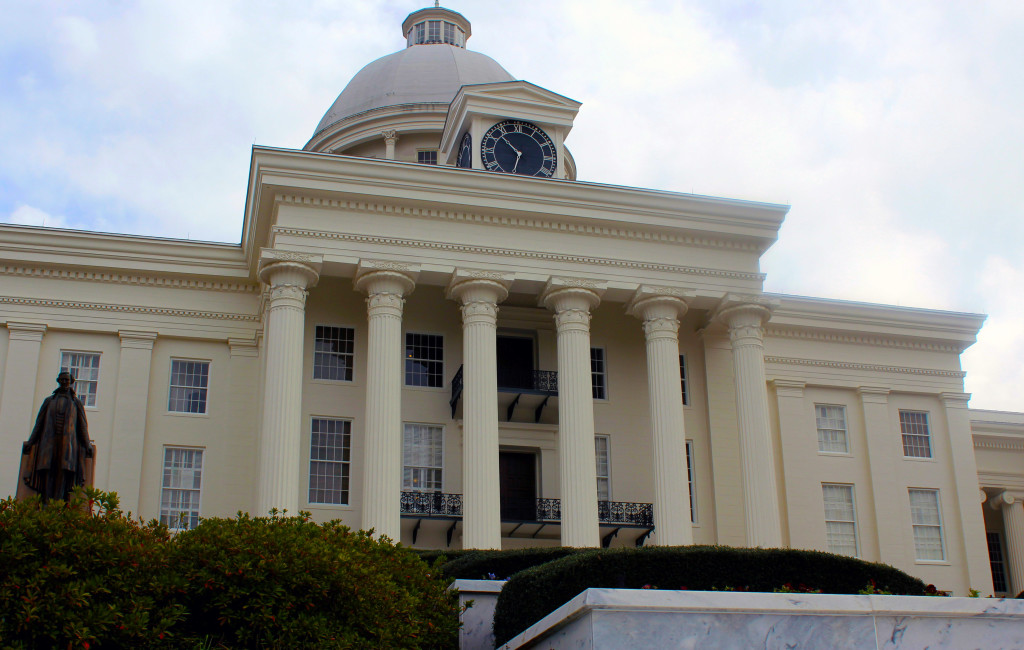
Black lawmakers in the Alabama Legislature are criticizing new district lines that were drawn after a federal court ruled the Republican majority relied too heavily on race in crafting them the first time. Rep. John Knight, a Montgomery Democrat, said Thursday that the proposal is unacceptable. Federal judges in January ordered lawmakers to redistrict after ruling that 12 districts were gerrymandered. The ruling came after the Legislative Black Caucus filed a lawsuit, saying African-Americans were “stacked and packed” into designated districts. Knight said lawmakers could land back in court if a compromise isn’t reached. Reapportionment Chairman Sen. Gerald Dial said the map corrects the problems found by the court. One sticking point could be partisan control of Jefferson County. Democrats want an even split. Republicans would hold the majority under their proposal. Republished with permission of The Associated Press.
Darryl Paulson: The Era of Bad Feelings

The Era of Good Feelings is the term used to describe the aftermath of the War of 1812 where the American nation sought to establish national unity during a period of one-party dominance. The Federalist Party, representing the urban and aristocratic citizens, disappeared after the disastrous Hartford Convention in 1814, leaving only the Jeffersonian Republicans as the sole political party. The Jeffersonian Republicans so dominated the political landscape that President James Monroe ran unopposed in 1820 and would have won a unanimous vote in the electoral college except for the vote of a few rouge electors. With the death of the Federalist Party, Monroe went on a national goodwill tour in 1817. While in Boston, the former Federalist stronghold, the term Era of Good Feeling was first used in a local paper. I am coining a new term to describe the current state of affairs of American politics: the Era of Bad Feelings. We have two political parties and each one hates the other. While political parties, by nature, are competitive, they have had a history of working together until the 1980s. After about a half-century of Democratic Party dominance in Congress from the 1930s to the 1980s, the Republican Party decided to stop working with the Democrats and, instead, oppose them on virtually every issue. Compromise was replaced by conflict. The end of compromise led to the collapse of ideological diversity in both political parties. Entering the 1980s, both the Republican and Democratic Parties had a mix of moderates, liberals and conservatives. Today, the Republicans have a few moderates among the mostly conservative ranks, and the Democrats have a few moderates among its liberal base. The political center is gone and the political extremes dominate both parties. Political hatred of the other party has grown so strong, that it affects what we read, what we watch, where we live and even who we marry. A Pew Research study of 10,000 Americans found that partisans prefer living in communities of like-minded individuals. Fifty percent of conservatives and 35 percent of liberals think it is “important to live in a place where people share my political views.” Liberals watch MSNBC and read American Prospect, the Progressive and the Daily Kos. Conservatives have Fox News and Rush Limbaugh to listen to, and they read the Drudge Report, Weekly Standard, National Review and Breitbart. As Americans increasingly live in communities of like-minded individuals and limit their viewing and reading only to sources that support their political views, it has led to a hardening of the political arteries. They constantly have their own political views reinforced instead of challenged. Political hatred is becoming so ingrained in Americans that parents increasingly object to their children marrying outside their faith. I’m not talking about religious faith, but their political faith. A half-century ago, only 5 percent of Americans objected if their child married a member of the opposite party. Today, that number has increased to 40 percent. As part of the growing intolerance of those who hold opposing political views, we increasingly engage in stereotyping to justify our hatred. Instead of dealing with individuals, it is easier to ascribe negative traits to everyone who belongs to the “wrong party.” Republicans stereotype Democrats as socialists intent on destroying the free enterprise system and encouraging individuals to go on welfare rather than work. Remember Mitt Romney‘s statement to Republican donors that he could not win the vote of 47 percent of the American voters because they were dependent on government handouts? Democrats attack Republicans as homophobic Neanderthals who hate women and minorities, and they have no compassion for the less fortunate in society. Stereotyping is the lazy person’s way to stop dealing with people as individuals and instead lump everyone together as a bad person. It is so much easier to dismiss the ideas of an entire group, than it is to sit down and talk about an issue and how to resolve it. The most recent manifestation of the Era of Bad Feelings is the 2016 presidential election. Many Republicans hated Hillary Clinton. They would argue that they disliked her because of her policies, but most could not envision any circumstance under which they could support her. Democrats hated Donald Trump because they viewed him as a racist and a womanizer, and they also believed he was unprepared to be president. To many Democrats, the billionaire Trump could never understand the burdens of poor Americans. Sixty-three million Americans voted for Trump and, yet, somehow Democrats are convinced all of them were crazy. Clinton received 3 million more votes than Trump, but Republicans saw this as a sign of Democratic insanity. If we spent a fraction of the time trying to understand and empathize with members of the other party, we may actually find that most of them are decent, honest people who have the same concerns that we have. We might even discover that they may have a better idea than we have. We cannot expect more of politicians than we expect of ourselves. It is time to end the irrational hatred that is counter to our real values and is impeding our ability to solve the problems that desperately need to be solved. ___ Darryl Paulson is Emeritus Professor of Government at USF St. Petersburg specializing in Florida politics, political parties and elections.
Dems elevate attacks as Supreme Court showdown nears
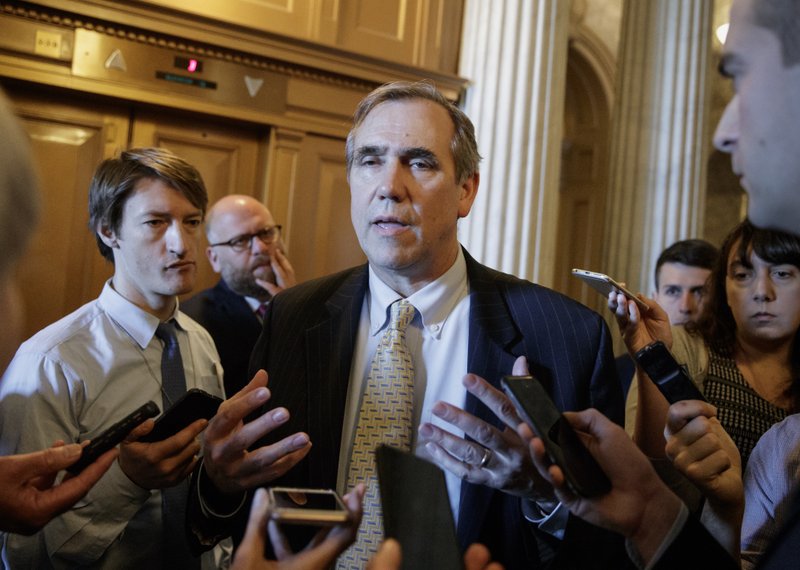
Senate Democrats elevated their attacks against President Donald Trump‘s Supreme Court nominee Wednesday, portraying him as an ally of the powerful and an enemy of the weak as an explosive showdown loomed on the Senate floor. Republicans defended Judge Neil Gorsuch, accusing Democrats of trying to block him out of frustration over Trump’s election victory. “Democrats would filibuster Ruth Bader Ginsburg if President Donald Trump nominated her,” said Majority Leader Mitch McConnell, R-Ky., naming one of the more liberal sitting justices. “There is simply no principled reason to oppose this exceptional, exceptional Supreme Court nominee.” Democrats begged to differ, returning again and again to McConnell’s decision last year to deny consideration to then-President Barack Obama‘s Supreme Court nominee, Judge Merrick Garland, who was ignored for nearly a year by Senate Republicans after the death of Justice Antonin Scalia. Instead McConnell kept Scalia’s seat open, a calculation that is now paying off hugely for Republicans and Trump, who will be able to claim the biggest victory of his presidency to date if Gorsuch is confirmed on Friday as expected. “For the first time in history, we are considering a nominee for a stolen Supreme Court seat, and that alone should be reason for everyone who cares about this institution to turn down this nominee,” Sen. Jeff Merkley, D-Ore., said on the Senate floor as he wrapped up a 15-and-a-half-hour overnight talk-a-thon to underscore his party’s opposition to Gorsuch. “This is an extreme nominee from the far right who doesn’t believe in the fundamental vision of ‘We the People.’” First, though, looms showdown votes Thursday, when 44 Democrats and independents intend to try to block Gorsuch by denying Republicans the 60 votes needed to proceed to final passage. McConnell and Republicans intend to respond by unilaterally changing Senate rules to remove the 60-vote filibuster requirement for Gorsuch and all future Supreme Court nominees, reducing it to a simple majority in the 100-member Senate. The pending developments prompted much hand-wringing from senators on both sides of the aisle about the future of the Senate as a bipartisan and deliberative body, though they themselves were in position to prevent it from happening and failed to do so. Moderate Republican Sen. Susan Collins of Maine said roughly 10 senators of both parties worked over the weekend to come up with a deal to stave off the so-called “nuclear option,” as the rules change is known, but couldn’t come to agreement. Sen. Chris Coons of Delaware was at the center of talks on the Democratic side. In 2005, a bipartisan deal headed off GOP plans to remove the filibuster barrier for lower-court nominees, although in 2013 Democrats took the step instead, leaving the filibuster in place only for Supreme Court justices. With Trump in the White House and political polarization at an extreme, senators working toward a compromise did not appear to have much support from leadership and weren’t able to finalize a deal. “We just couldn’t get there,” Collins said. And so, with the fight over Gorsuch, the Senate is on the verge of killing off the Supreme Court filibuster, the one remaining vestige of bipartisanship on presidential appointments. For now the filibuster barrier on legislation will remain, though many fear it could be the next to go. “I fear that someday we will regret what we are about to do. In fact, I am confident we will,” said Sen. John McCain, R-Ariz. “It is imperative we have a functioning Senate where the rights of the minority are protected regardless of which party is in power at the time.” Nonetheless, McCain was prepared to vote with McConnell on the rules change, saying he felt he had no choice. Gorsuch now counts 55 supporters in the Senate: the 52 Republicans, along with three moderate Democrats from states that Trump won last November — Joe Manchin of West Virginia, Heidi Heitkamp of North Dakota and Joe Donnelly of Indiana. A fourth Senate Democrat, Michael Bennet from Gorsuch’s home state of Colorado, has said he will not join in the filibuster against Gorsuch but has not said how he will vote on confirmation. Merkley’s lengthy speech, while not technically a filibuster because it did not prevent or delay a planned vote, did qualify as the eighth-longest floor speech in Senate history at 15 hours and 27 minutes, according to the Senate historical office. Merkley devoted part of his floor remarks to highlighting plagiarism charges against Gorsuch that surfaced at the last minute in documents provided to The Associated Press and other news organizations, showing similarities between Gorsuch’s writings about assisted suicide and earlier pieces by other authors he did not credit. Merkley questioned whether Republicans were moving quickly to end debate on Gorsuch’s nomination “before that information becomes public.” The White House pushed back at the allegations, which spokesman Steven Cheung dismissed as a “baseless, last-second smear” that had been discredited and refuted. Republished with permission of The Associated Press.
Steve Flowers: Handicapping Democrats for 2018 governor’s race

Last week, we handicapped some of the potential horses in the upcoming 2018 Governor’s Race. We mentioned Judge Roy Moore, PSC President Twinkle Cavanaugh, Agriculture Commissioner John McMillan, Secretary of State John Merrill, State Treasurer Young Boozer, State Senator Del Marsh and Huntsville Mayor Tommy Battle. Some others that may be considering pursuing the brass ring of Alabama politics are Lt. Governor Kay Ivey, Supreme Court Justice Jim Main, Jefferson County Commission President David Carrington, Trump’s Trumpeter in the State Perry Hooper, Jr., Huntsville State Representative Jim Patterson and ADECA Director and former Prattville Mayor Jim Byard. You can also add former Auburn coach Tommy Tuberville to the mix of possible gubernatorial candidates. All of these aforementioned horses would run as Republicans in the 2018 Gubernatorial Derby. It is assumed that only a Republican can win statewide office in Alabama and that next year’s June 2018 GOP primary is tantamount to election. Therefore, it is only a 15-month race to election for governor. The late Lucy Baxley was the last Democrat to hold statewide office in Alabama. She lost re-election to the PSC in 2012. It has been almost two decades since a Democrat has captured the Governor’s office. Donald Trump carried Alabama with almost 63 percent of the vote. It is thought by most political prognosticators that a Democratic candidate can at best get 40 percent of the vote in the Heart of Dixie. However, there are several brave souls who are die-hard Democrats and may be bold enough to test that theory. One of these emboldened is Parker Griffith, who ran as the Democratic nominee against Robert Bentley four years ago, in 2014 and received 36 percent of the vote. Griffith is a personable, former oncologist, State Senator and Congressman from Huntsville. He seems dedicated to making the plunge. The most mentioned Democratic candidate is former Chief Justice Sue Bell Cobb. She was elected to the state Supreme Court in 2012, which was the last time a Democrat won statewide in Alabama. She is seriously considering the race for governor. She could be handicapped by the fact that she quit in the middle of her term on the Court and a Republican was appointed by the Governor. State Representative Craig Ford who has served as House Minority Leader is considering a run for governor. Like Griffith, Ford is likable. He is one of the few remaining white Democrats left in the Alabama House of Representatives. In fact, if Ford vacated his seat to run for Governor a Republican would probably take it. The wild card in a potential Democratic field might be the popular young Mayor of Tuscaloosa, Walt Maddox. He considers himself a Democrat. Maddox is well thought of in the Druid City, which is a more populous and vote-rich area of the state than most folks realize. If he got a strong support from Tuscaloosa coupled with the ADC and New South endorsements, it could propel him to the Democratic nomination. He would bring to the dance a sterling record of achievement as Mayor of Tuscaloosa. However, if he has to go through a bruising primary he may come to the prom beat up and broke. Not to mention that the Prom King/Queen is highly favored to be a Republican. He would be hard-pressed to raise campaign money in the fall campaign. Most of the bets would be placed on the Republican. This brings us to another chapter in the governor’s race. The folks who wrote our 1901 Constitution intended for the power in state government to be rested in the hands of the legislature. During the Wallace years, George Wallace had immense power over the legislature. This usurpation of power has incrementally declined over the years. It has culminated with a decimation of gubernatorial power. The last two governors, Bob Riley and Robert Bentley, have been rendered irrelevant by the legislature. Special interests have taken note of this transfer of power and their money has followed. Campaign money that use to go to the governor’s race now flows to legislative races. It is not unusual to see House seats cost $300,000 and State Senate races rise to $1 million. It is going to be a great election year. See you next week. ___ Steve Flowers is Alabama’s leading political columnist. His weekly column appears in over 60 Alabama newspapers. He served 16 years in the state Legislature. Steve may be reached at www.steveflowers.us.
Democrats oppose Neil Gorsuch, say he rules against workers
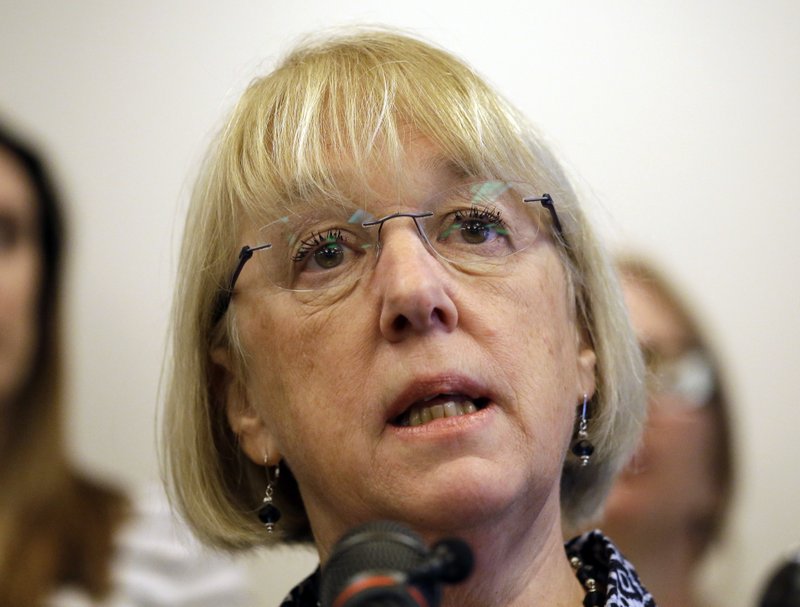
Three additional Democrats said Friday that they will vote against Supreme Court nominee Neil Gorsuch and will support a filibuster against him. California Sen. Kamala Harris and Washington Sen. Patty Murray both said that they believe the Denver-based appeals court judge has ruled too often against workers and in favor of corporations. New Mexico Sen. Tom Udall said Gorsuch had failed to convince him he’d be an independent voice against President Donald Trump, who nominated Gorsuch in January. “The stakes don’t get any higher,” Harris said in a piece in the San Francisco Chronicle. “Some argue that if a nominee has a stellar legal resume, he or she is qualified to sit on the bench and our job is done. I disagree. As U.S. senators, we have an obligation to also examine a nominee’s legal approach and ask whether he or she considers the impact of those decisions on our society and the daily lives of our people.” Murray said she also is opposing Gorsuch because of “chaos” in Trump’s administration, pointing to his refugee and travel ban blocked by federal courts and an FBI investigation into the Trump campaign’s connections with Russia. She said those issues have led her to conclude that “I cannot trust that President Trump is acting in the best interest of our country or our democracy and that I cannot support moving forward with his choice for the court.” Udall echoed those concerns and said Gorsuch failed to win him over when the two met. Gorsuch “failed to answer questions that are critical for me — his position on the rights of working mothers, whether women can choose their own health care decisions, LGBTQ rights and dark money in our elections, to name a few,” Udall said. The Senate Judiciary Committee held four days of confirmation hearings this week, including two days questioning Gorsuch. He refused to give his personal views on most any issue, including abortion, campaign finance and others that Democrats questioned him on. But in response to Democratic criticism, he repeatedly said he has often ruled for the “little guy” over corporations. He said several cases in which he has ruled for corporations over workers “don’t represent the body of my work.” He also stressed he’d be an independent voice, saying that “no man is above the law.” Harris, Murray and Udall join several other Democratic colleagues who have said they will vote against Gorsuch, including five Democrats who announced their opposition Thursday. Senate Democratic Leader Charles Schumer was one of those five, and he also said Democrats would try and block the nominee. Still, majority Republicans are expected to ensure that he reaches the bench, perhaps before the middle of April. Republished with permission of The Associated Press.
Vulnerable Dems lay low as town hall angst rages
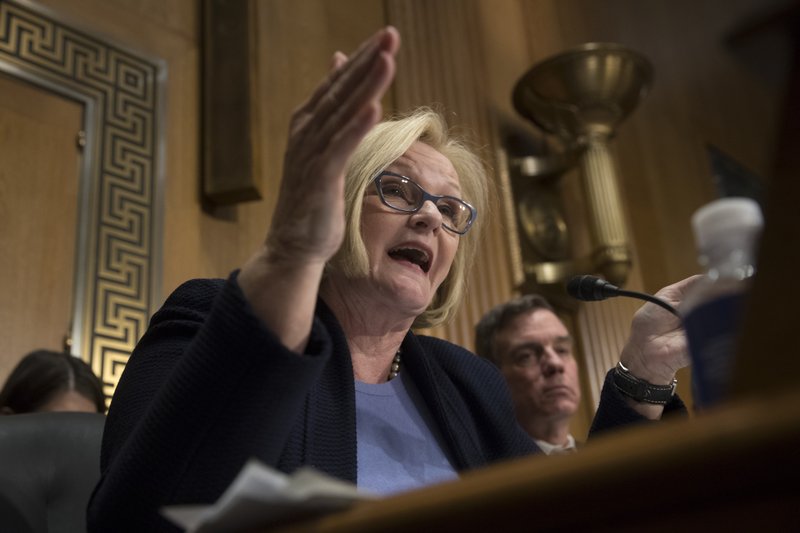
From Montana to West Virginia, the nation’s most vulnerable Senate Democrats are avoiding town hall meetings as their Republican counterparts get pummeled by an energized electorate frustrated with President Donald Trump‘s early agenda. Some Democrats prefer to connect with constituents over the telephone or using social media. Others are meeting voters in controlled environments with limited opportunities to ask questions. But few of the 10 Democratic senators facing re-election next year in states carried by Trump have scheduled in-person town hall meetings during this week’s congressional recess. Missouri Sen. Claire McCaskill declined an invitation to attend a town hall organized by a group called Kansas City Indivisible this weekend, deciding to send a staff member in her place. The two-term senator, up for re-election next year in a state Trump won by nearly 19 percentage points, is scheduled to chat with voters next week on Facebook Live. “Seems to me that all these members of Congress are afraid to face their constituents,” said Hillary Shields, a volunteer organizer with the Kansas City group. The cautious approach comes as Senate Democrats work to limit risks ahead of a challenging 2018 election season. After claiming the Senate majority in 2014, Republicans could win a filibuster-proof 60-vote Senate majority next year in an election in which Democrats are defending 25 seats (23 held by Democrats, two by independents), 10 of them in states carried by Trump. The GOP has a 52-48 edge in the Senate. There are no easy answers for Democrats like McCaskill, pushed to stand up to the Republican president by their liberal base and pulled to cooperate with the GOP by independents and moderates. McCaskill’s office noted she spent part of this week touring the U.S.-Mexico border and planned to host town halls later in the year. The political pressure is particularly intense for West Virginia Sen. Joe Manchin and North Dakota Sen. Heidi Heitkamp, Democrats whose states backed Trump by an average of 39 percentage points in November. Both have avoided formal town halls this week, but Heitkamp’s office said she participated in a discussion about flood issues with constituents in northeastern North Dakota and attended a subsequent ribbon-cutting on Thursday. She planned to tour a local National Weather Service office on Friday. Manchin’s office reported an equally busy schedule, but his constituents said he’s been hard to find this week. They’ve scheduled a protest outside the Democratic senator’s Charleston office on Friday to demand more access, according to Cathy Kunkel, an energy consultant who helped plan the protest. “Here we are, and we’d like a town hall meeting,” Kunkel said. “His constituents have a lot of questions. This is the first recess of the new Congress in the Trump administration.” As skittish Democrats dodge, many Republicans face an outpouring of anger in public meetings across the nation from constituents fired up over Trump’s first steps as president. Republicans like Senate Majority Leader Mitch McConnell and Arkansas Sen. Tom Cotton have been yelled at, heckled and booed in recent days. Some Republicans have avoided such confrontations. Texas Rep. Louie Gohmert evoked the near-fatal shooting of former Rep. Gabrielle Giffords to explain why he’s only holding telephone town halls. Giffords on Thursday urged members of Congress to “have some courage” and face their constituents. Yet few vulnerable Senate Democrats are expected to do so in settings that allow for unscripted questions. In Montana, where Trump prevailed by 20 percentage points, Sen. Jon Tester made several public appearances this week, but he did not advertise any of them as town halls. He answered questions about Scott Pruitt, Trump’s new chief of the Environmental Protection Agency, at one event about climate change, said spokeswoman Marnee Banks. In Pennsylvania, a spokeswoman for Sen. Bob Casey said he would host a town hall in early March, but the details hadn’t yet been set. In Florida, Sen. Bill Nelson addressed students at two Thursday appearances focused on education. And in Ohio, Sen. Sherrod Brown “has participated in several telephone conference calls recently” and his office “emailed surveys out to constituents” to gauge their priorities, said spokeswoman Jennifer Donohue. For now, protesters’ angst is largely focused on Republicans. But only a few weeks ago, Democrats including Senate Minority Leader Chuck Schumer and liberal heroine Massachusetts Sen. Elizabeth Warren faced a sharp rebuke for backing one of Trump’s Cabinet picks. “Grassroots Democrats won’t be shy about challenging their own leaders if they sense a whiff of cooperation with the Trump agenda,” said Ben Wikler, Washington director for the liberal group MoveOn.org. It’s unclear if they’ll get the chance with certain Senate Democrats, however. Shields noted that McCaskill made time to visit the Mexican border: “We’d like to have her back in Missouri.” Republished with permission of The Associated Press.
GOP senators move Trump EPA pick ahead as Dems boycott vote
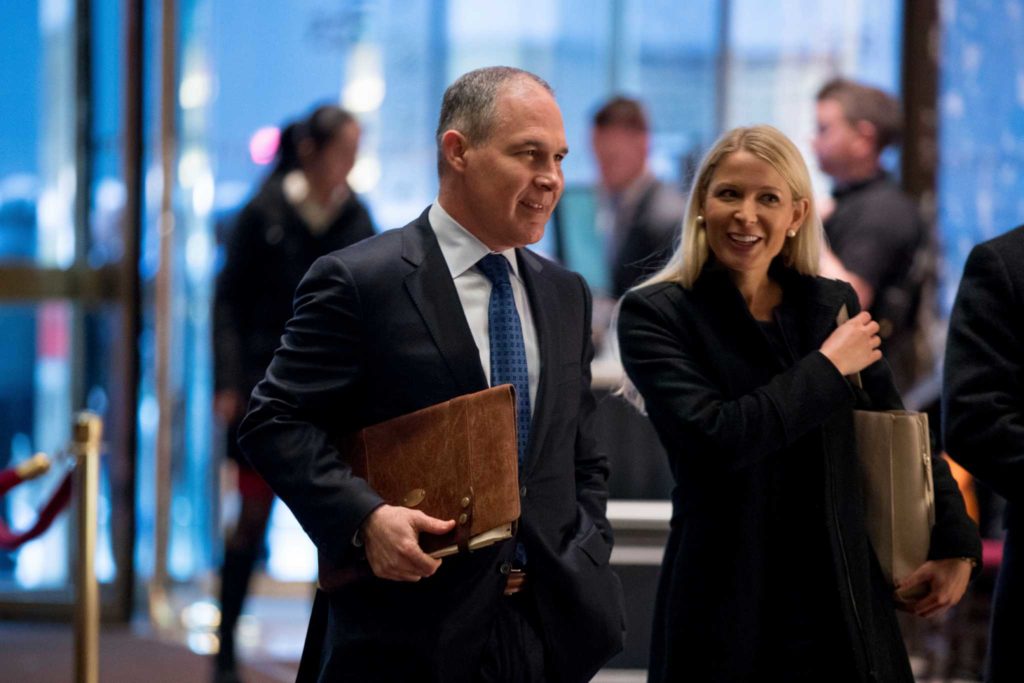
Republicans suspended Senate committee rules Thursday to muscle through President Donald Trump‘s pick to lead the Environmental Protection Agency toward a confirmation vote after Democrats boycotted a meeting. It was the latest sign of political hostilities on Capitol Hill as Senate Democrats used parliamentary procedure to delay votes on some of Trump’s Cabinet nominees and Republicans used their slim Senate majority to advance and approve them. The seats reserved for the 10 Democrats on the Senate Environment and Public Works Committee were empty for a second consecutive day as the scheduled meeting to discuss to nomination of Scott Pruitt was gaveled to order. Committee rules required that at least two members of the minority party be present for a vote to be held. The 11 Republicans voted unanimously to suspend those rules and then voted again to advance the nomination of Pruitt, the state attorney general of Oklahoma. Committee chairman John Barrasso accused the absent Democrats of engaging in delay and obstruction. “It is unprecedented for a minority to delay the nominee of incoming president to this extent,” said Barrasso, R-Wy. “Elections have consequences.” Despite the rhetoric from the committee’s Republicans, the Democrats appeared to have borrowed directly from their opponent’s playbook. In 2013, GOP members of the same committee boycotted a similar committee meeting on Gina McCarthy, President Obama’s then-nominee for EPA administrator. McCarthy was eventually approved by the Senate, serving in the post until Trump’s inauguration earlier this month. Barrasso has said that is not an “apples-to-apples” comparison since Obama was not then a new, first-term president building out his team. Democratic members of the committee said this week the boycott was necessary because Pruitt has refused to fully respond to requests for additional information. “For more than a month, Mr. Pruitt has not fully responded to inquiries, questions for the record, or requests for information on his record and views on clean air, clean water, and climate change,” said Sen. Ed Markey, D-MA. “Senate Democrats and the American public have a right to basic information from all of Donald Trump’s nominees, including Scott Pruitt, before taking votes on them in committee or on the Senate floor.” While Pruitt’s nomination has been hailed by Republicans and the fossil fuel industry, Democrats and environmental groups say his confirmation would be a disaster for the EPA. In his current position as Oklahoma’s state attorney general, Pruitt has frequently sued the agency he hopes to lead, including filing a multistate lawsuit opposing the Obama administration’s plan to limit planet-warming carbon emissions from coal-fired power plants. Pruitt also sued over the EPA’s recent expansion of water bodies regulated under the Clean Water Act. It has been opposed by industries that would be forced to clean up polluted wastewater. Like Trump, the 48-year-old Republican has previously cast doubt on the extensive body of scientific evidence showing that the planet is warming and man-made carbon emissions are to blame. Pressed by Democrats in his Senate confirmation hearing earlier this month, however, Pruitt said he disagreed with Trump’s earlier claims that global warming is a hoax created by the Chinese to harm the economic competitiveness of the United States. “I do not believe climate change is a hoax,” Pruitt said. Democrats have also criticized Pruitt’s close ties to the oil and gas industry. Though Pruitt ran unopposed for a second term in 2014, campaign finance reports show he raised more than $700,000, much of it from people in the energy and utility industries. Among those who gave the maximum contribution of $5,000 to Pruitt’s campaign was Continental Resources Chairman and CEO Harold Hamm, an Oklahoma oil tycoon who has been advising Trump. Republished with permission of the Associated Press.
Democrats decry Donald Trump threat to fire inspectors general
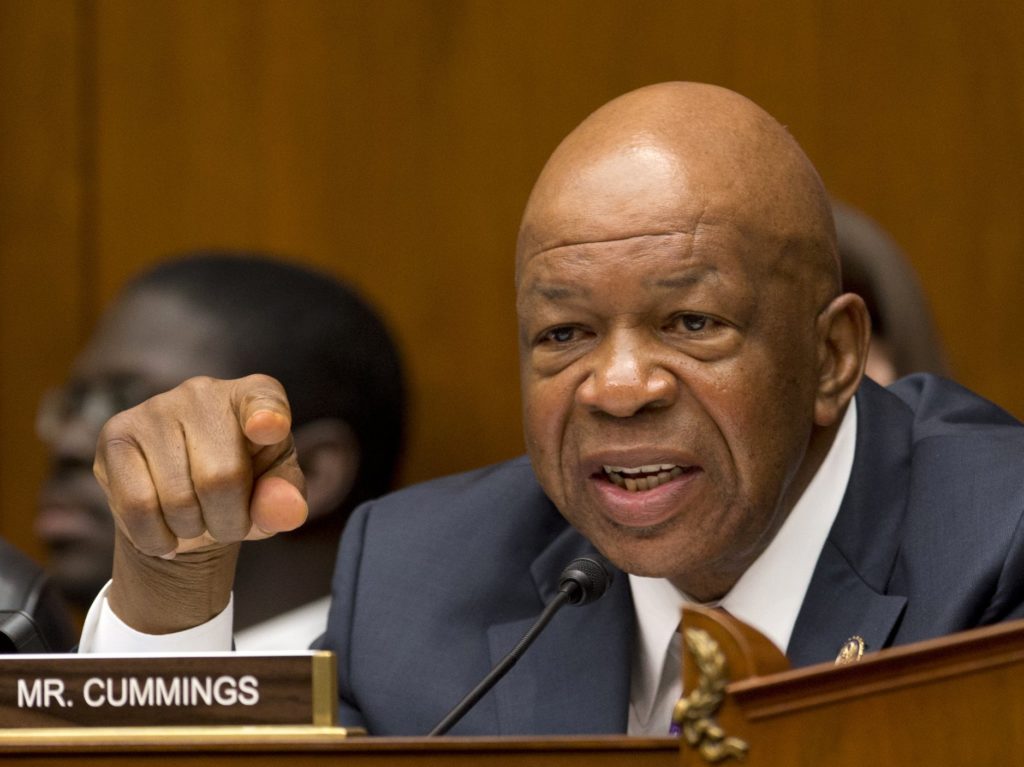
Democrats on the House Oversight Committee asked the White House Tuesday for information about reports that President Donald Trump‘s transition team threatened to remove a host of inspectors general from their posts. Democrats Elijah Cummings of Maryland and Gerald Connolly of Virginia said Trump officials apparently contacted as many as eight inspectors general earlier this month to inform them their positions were “temporary” and they should begin looking for other employment. The threats appear to have been withdrawn amid complaints from lawmakers and the inspectors general, “but there is no official communication confirming that this occurred,” the Democrats said. Cummings is the top Democrat on the oversight panel, while Connolly is the second-ranking Democrat. The lawmakers asked White House Counsel Donald McGahn to confirm in writing that Trump has no plans to fire any inspectors general. Inspectors general are internal watchdogs who conduct audits of federal agencies and investigate complaints of wrongdoing. The position is considered nonpartisan, although about half of the 70-plus inspectors general are appointed by the president; the rest are appointed by agency chiefs. Republished with permission of The Associated Press.
Senate Democrats escalate fight over Jeff Sessions after Donald Trump fires Sally Yates
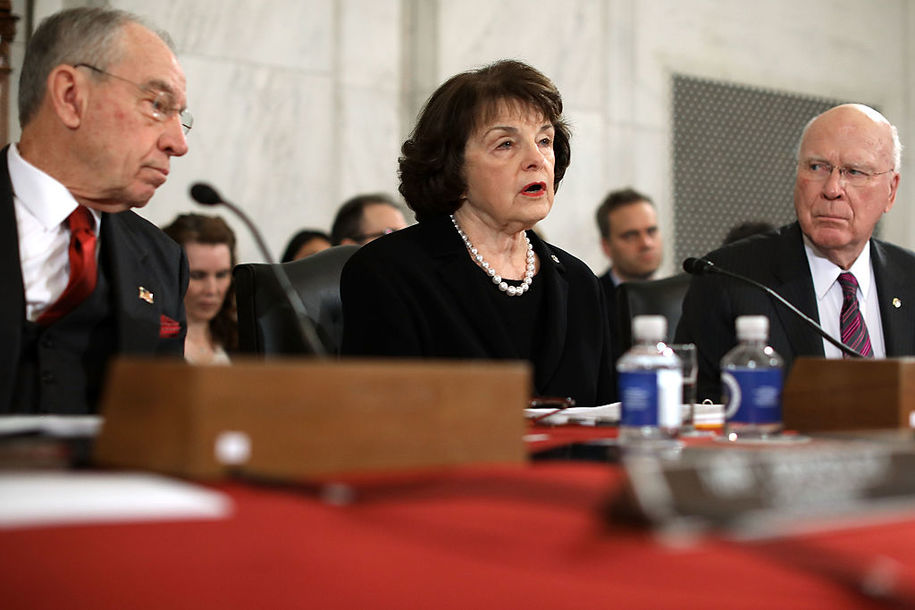
Senate Democrats doubled-down on their opposition to President Donald Trump‘s pick for attorney general, Republican Sen. Jeff Sessions, questioning his independence following Trump’s Monday night dismissal of the acting attorney general Sally Yates for refusing to enforce his executive order on immigration. The vote on Sessions’ nomination has been delayed until Wednesday. Democratic senators spent several hours Tuesday morning detailing the reservations they have about Sessions’ ability to be an independent attorney general, serving as a power-check to Trump who already believe is already pushing the bounds of his executive powers. “That is what an attorney general must be willing and able to do,” said the top Democrat on the Judiciary Committee, California-Democrat Sen. Dianne Feinstein. “I have no confidence Sen. Sessions will do that. Instead he has been the fiercest, most dedicated and most loyal promoter in Congress of the Trump agenda.” “Will he support and defend these broad and disruptive executive orders? Will he carry out and enforce the president’s actions that may very well violate the Constitution? It’s not difficult to assess that he will,” Feinstein concluded. Vermont-Democrat Sen. Patrick Leahy joined in voicing his opposition. “What we saw last night demonstrates what is at stake with this nomination,” said Leahy during the Tuesday morning meeting. “The attorney general is the people’s attorney. Not the president’s attorney. He or she does not wear two hats at once. I have very serious doubts that Senator Sessions would be an independent attorney general,” Leahy added. The Committee vote on Sessions’ nomination will now take place 10:30 a.m. Wednesday.
Growing list of Democrats boycotting Donald Trump inauguration
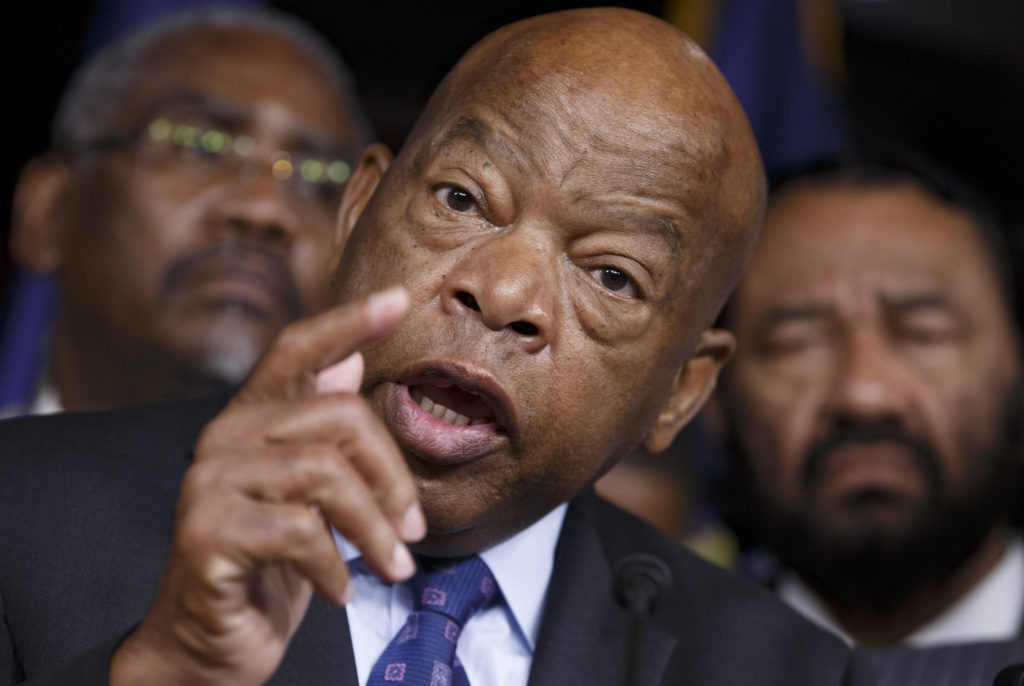
More than 40 House Democrats plan to boycott President-elect Donald Trump‘s inauguration on Friday, casting the Republican businessman as a threat to democracy. Reps. Steve Cohen of Tennessee, Jerrold Nadler of New York and Don Beyer of Virginia on Monday joined a growing list of lawmakers who will not attend Trump’s swearing-in at the U.S. Capitol. The number who initially said they would skip the event has increased after Trump lashed out at Rep. John Lewis, D-Ga., on Saturday for challenging his legitimacy to be the next president. Trump struck again Tuesday morning with a tweet that noted that Lewis had claim that Trump’s inauguration would be the first he will have missed since coming to Congress in 1987. “WRONG (or lie)!” Trump tweeted, saying Lewis had skipped George W. Bush‘s inauguration in 2001. Lewis’ office on Tuesday confirmed that the civil rights icon had missed Bush’s swearing in. “His absence at that time was also a form of dissent,” said spokeswoman Brenda Jones. “He did not believe the outcome of that election, including the controversies around the results in Florida and the unprecedented intervention of the US Supreme Court, reflected a free, fair and open democratic process.” Cohen said the hope and change associated with President Barack Obama taking office eight years ago have been replaced by “fear and dread.” “This president ‘semi-elect’ does not deserve to be president of the United States,” Cohen said in a statement. “He has not exhibited the characteristics or the values that we hold dear. That Dr. (Martin Luther) King held dear. That John Lewis holds dear. And when he questioned the integrity of my friend, colleague and civil rights icon John Lewis, that crossed the Rubicon.” Trump and other Republicans have dismissed the boycott and complaints, saying Democrats are sore losers who need to accept the results of the election and move on. Democrats control 194 House seats. While many Democrats were furious with the outcome of the drawn out 2000 election in which George W. Bush defeated Al Gore after recounts and a Supreme Court ruling, they generally attended Bush’s inauguration as the nation’s 43rd president. The House is out of session most of this week and roll call votes are not anticipated, so other lawmakers in both parties may skip the trip. Obama repeatedly faced questions during the 2008 campaign about the widely debunked claim that he was not a U.S. citizen and that his birth certificate was a fake. Trump, in fact, perpetuated that notion for many years before a brief statement last year that Obama was a citizen. Republicans attended Obama’s two inaugurations. Nadler, in a statement, said he refuses “to sit idly by as he (Trump) flaunts his illicit behavior without regard for the American people’s interest. I refuse to abide any effort to undermine a free and independent press, which serves a pivotal role in any democratic system and whose rights are guaranteed by our Constitution. I refuse to applaud for a man with a history of offensive and abusive behavior to women and minorities.” Beyer said he will not be part of the “normalizing or legitimizing” of a man whose election may be the result of “malicious foreign interference of Russian leaders,” a reference to U.S. intelligence’s assessment that Russia meddled in the election to help Trump win. Carol Shea-Porter, D-N.H., said in a tweet Monday night that instead of attending Friday’s ceremonies, she’ll go to religious services to “pray for all of our leaders and people.” Lewis said last week that he would not attend Trump’s swearing-in, claiming it the first time he had skipped an inauguration since joining Congress three decades ago. “You know, I believe in forgiveness. I believe in trying to work with people. It will be hard. It’s going to be very difficult. I don’t see this president-elect as a legitimate president,” Lewis said in an interview with NBC’s “Meet the Press” that aired Sunday. “I think the Russians participated in helping this man get elected. And they helped destroy the candidacy of Hillary Clinton,” Lewis said. That drew angry weekend tweets from Trump, who wrote that “rather than falsely complaining about the election results,” Lewis should focus on his congressional district. Republished with permission of The Associated Press.
Out of power, state Dems frustrated with national committee
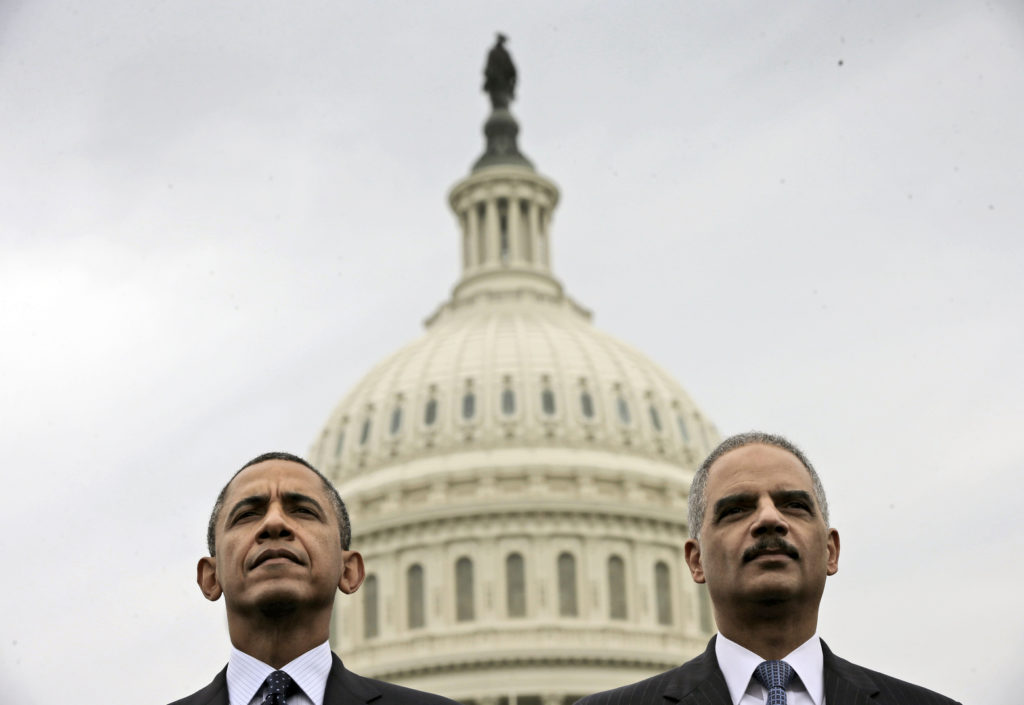
Democrats around the country are demanding change from a national committee they say has focused too heavily on the White House at the expense of governorships, legislatures and state party operations. “It’s got to be helping us organize in our states to be able to build that power at the state legislative level,” Michigan Democratic Party Chair Brandon Dillon said of the Democratic National Committee, currently searching for a new leader. “We’ve lost governorships and state legislatures at a rate that is pretty astounding.” DNC members gather in February to elect a new chairman, with five candidates running so far, each pledging to rebuild from the ground up. Money from the DNC to state parties has been inconsistent during President Barack Obama’s tenure and, in most states, less than it was under former chairman Howard Dean. Party chairs say that’s resulted in fewer staff members and training programs, a change felt particularly in Republican-leaning states. State leaders also say Obama’s grassroots group Organizing for Action has functioned more like competition than a partner. Beginning in 2017, Republicans will hold 33 governorships and fully control legislatures in 25 states, as well as the Congress and presidency. During Obama’s two terms in office, the party lost more than 1,000 seats at the state and national level. “I love President Obama, but he and his administration allowed for the deterioration, the terrible deterioration, of the state parties over the last eight years,” said Mark Brewer, who led the Michigan Democratic Party for 18 years. Obama has announced plans, though, to improve Democrats’ down-ballot fortunes once he leaves office. He is launching an initiative with former Attorney General Eric Holder aimed at making Democratic gains when states redraw legislative district lines following the 2020 census. Democrats have blamed Republican gerrymandering for some of their losses in Congress and state legislatures. State officials say it’s been hard to plan long term and recruit and train candidates in off-election years due to inconsistent funding from the DNC. Under Dean, the national party installed and paid several staff members in each state. But that program ended after Obama’s election. State parties began to receive monthly payments of anywhere from $5,000 to $10,000, an amount that varies depending on the year. At some point, the parties have received no money at all. The DNC does provide some money to state parties for elections based on the state’s competitive races and other factors. The change has left some states scrambling. The Nebraska Democratic Party, for example, paid five full-time staff members during Dean’s tenure. But when Dean’s “50-state strategy” ended, it was hard to keep one and pay the rent, said Maureen Monahan, a vice president of the Association for State Democratic Chairs from Nebraska. Some states, such Mississippi, do not pay their party chairs. Even in Michigan, a staff that once stood at more than a dozen now is between five and seven employees, party chairs said. “The past eight years we have not had any focus on the state parties,” Monahan said. “There’s been a sense that the DNC is a building in Washington.” The push-and-pull between state parties and the DNC is nothing new. State parties, congressional Democratic groups and the president’s allies often spar over how best to spend party resources. The DNC defended its involvement with states. “State parties are the lifeblood of the DNC, and we make investing in all of them a priority because they are an integral part of winning up and down the ballot. State parties were critical to picking up Senate seats, House seats, legislative chambers and governorships in 2016, and their importance will be a key focus for the party as we elect new officers in February,” DNC spokesman Adam Hodge said. Marcel Groen, Pennsylvania Democrats’ chair, said it’s unfair to blame Democrats’ troubles completely on the national party. But he said a focus on recruiting and running Democrats even in low level races in Republicans areas can help the top of the ticket in the long term. “We can’t expect people in rural areas, in red areas, to vote for our presidential candidates or our gubernatorial or Senate candidates if they’ve never seen a Democrat running for school board or county office,” he said. Republished with permission of The Associated Press.
Democrats extol health care law in bid to derail GOP repeal
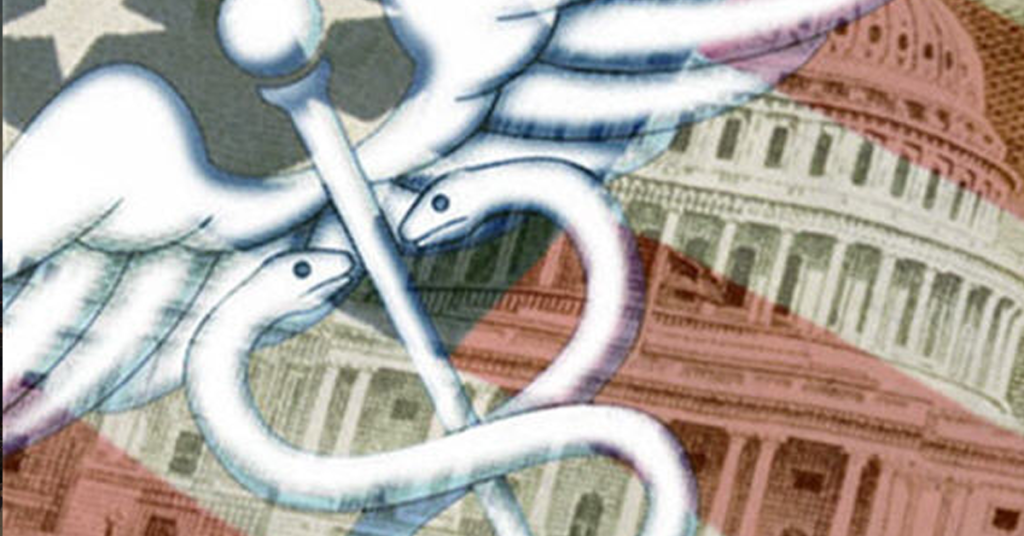
Senior House Democrats on Monday extolled the benefits of President Barack Obama‘s health care law in hopes of derailing Republican plans to gut the statute and over time replace it. In a conference call with reporters, House Minority Leader Nancy Pelosi said the GOP will begin its “assault” on the health care law when the 115th Congress convenes Tuesday. She said abolishing the law, known as the Affordable Care Act, as Republicans have promised will mean that people will pay more for their health insurance while getting much less than they do now. Undoing the law also will undermine Medicaid and Medicare, she said. Currently Republicans plan to vote quickly on repealing the health care law and delay the effective date to give them time to craft a replacement. Pelosi blasted that strategy as “an act of cowardice.” She urged people to “take a second look” at how the health care law has improved their lives. Minority Whip Steny Hoyer, the No. 2 Democrat in the House, said he believes that many people who voted for President-elect Donald Trump want the health care law preserved even though Trump made repeal of the statute a central part of his campaign. “I think a lot of people are going to be looking at this and saying, ‘Gee, I really didn’t mean that,’” Hoyer said. Republicans have opposed Obama’s law since Democrats steered the law through Congress in 2010. The GOP has tried numerous times to repeal the law but failed due to internal divisions and Obama’s veto power. But with the GOP in control of the House and Senate and Donald Trump set to become president in a few weeks, doing away with “Obamacare” is in sight for Republicans. GOP lawmakers are expected to spend the next several months working on legislation to cancel broad swaths of the law that the party’s voter base staunchly opposes. Most likely to go are the law’s mandate that people buy health insurance or face hefty IRS fines, and its expansion of Medicaid coverage to more lower-earning Americans. But several elements of the repeal likely wouldn’t go into effect for two to four years. Rep. Frank Pallone of New Jersey, the top Democrat on the House Energy and Commerce Committee, said Republicans are “blind to the success” of the health care law. Repealing the law is rooted in politics, he said, and will hurt middle class Americans. “Repealing the Affordable Care Act is not logical; it’s simply ideological,” Pallone said. Republished with permission of The Associated Press.


